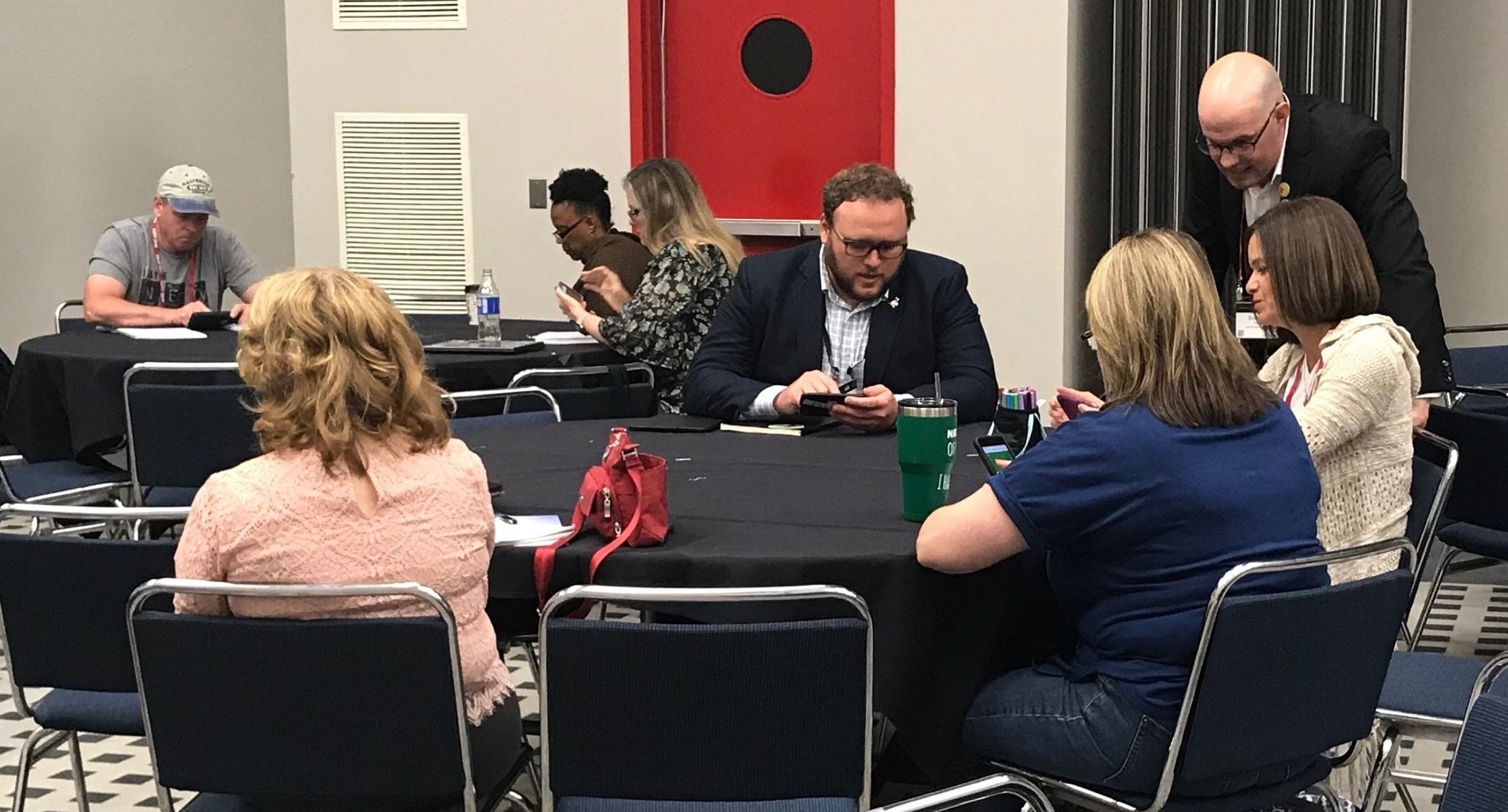
As the new Education Engagement Manager at MIND Research Institute, I’m continually researching and evaluating methods to engage others in math. Right now, I’m most interested in why building a relationship with math should be encouraged for both learners and educators.
Since I have only been in a classroom as a student, holding conversations with educators allows me better insight into the challenges and successes they experience. Recently, I had the opportunity to meet with many principals, math coaches and teachers at once. I returned to my home state of Texas to attend the Conference for the Advancement of Mathematics Teaching (CAMT).
The annual conference, held in Houston this year, hosted approximately 750 pedagogy and mathematics-centered discussions and workshops for K-12 teachers. Speakers from across the country, including Nigel Nisbet and Brandon Smith of MIND, discussed innovative ideas and practices teachers can implement in their classrooms to address a variety of curriculum-related concerns.
I talked to as many educators as possible to gain a greater understanding of how they approach mathematics in the classroom. Here are the takeaways from those conversations.
When I moved from Texas in 1996, I remember teachers using Minute Math and Super Munchers as tools to make math fun. At CAMT, I observed that same effort to engage students in math as teachers became students for the weekend. In their commitment to transform relationships with math, instructors put themselves in the mind of a student and learned innovative games and strategies to incorporate in their classrooms.
A common theme in many of the sessions was a push to get students to a place of deeper conceptual understanding. In teaching the “why” and not just the “how”, math students learn dynamic strategies which enhance their creative problem-solving skills and better equip them to apply that knowledge in the real world.
Teach your students #math not tricks! 🙌🏼 #GotMath #CAMT18
— Mrs. Aguilar's class (@MrsAguilarsJags) July 18, 2018
When I started at MIND, I learned the term personalized learning, but was unclear on what it looked like in the classroom. Through a series of informative sessions and discussions with educators, I saw how significantly personalized learning can impact a student’s relationship with math.
Whether a student is a high achiever or struggling with the curriculum, incorporating student action-driven learning can open the door for dialogue on challenges and growth. Particularly when addressing challenge and struggle, many speakers stressed the importance of celebrating failure as a lesson learned. In turning a negative into a positive, students learn from actions, not instructions, and get the informative feedback they need to move forward.

Brandon Smith, Lead Mathematician at MIND, facilitates a math activity at CAMT.
Throughout my time at CAMT, I was constantly reminded of a quote from Malcolm X: “Education is the passport to the future, for tomorrow belongs to those who prepare for it today.” There was a noticeable energy among attendees to find solutions through math to empower students to become lifelong learners. Regardless of what challenges their individual classrooms face, the educators at CAMT were collectively committed to finding answers to create an environment of support and inspiration for our future leaders.
We are educators we are paying it forward! Sending positive messages to a future we may never see! #gotmath
— Jana Knight (@JanaKnight10) July 18, 2018
One of the reasons I enjoy working at MIND is because, like the educators I met, we are committed to transforming students’ relationships with math. Through our innovative visual instructional program ST Math, students are able to solve math puzzles utilizing creative and rigorous problem solving.
Thanks to all the educators who came out to see us in Houston this week! Wishing you a safe journey home and a great upcoming school year. Bye y’all! #CAMT18 pic.twitter.com/jbDEeVB1fY
— ST Math (@STMath) July 18, 2018
CAMT 2019: Viva las Matemáticas! will be held in San Antonio. I look forward to learning even more about empowering our future leaders then, with some of our country’s greatest educators and with the MIND team.
Comment